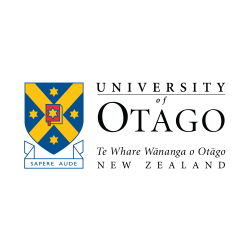
Lecturing proficiency and effectiveness of New Zealand accounting and finance academics
Status
Completed: 15 April 2016
Project Details
A two-year project to investigate how accounting and finance academics can improve their proficiency and effectiveness as teachers and provide practical techniques educators can use to improve their students’ learning experience. A collaboration of University of Otago and University of Canterbury.
Aims:
The main aims of the project were to:
- investigate lecturing effectiveness of New Zealand accounting and finance academics
- investigate why low student satisfaction exists
- explain how accounting and finance academics can improve their lecturing effectiveness and thereby benefit their students' learning outcomes.
Methodology:
The project used a mixed method approach involving:
- a literature review
- participant observation to identify why attendance at lectures is falling; whether lectures are an effective method compared with other forms of class; and why some lectures are better than others
- focus groups to identify what facilitated a satisfying learning outcome; what contributed to effective student learning outcomes; and how the environment has contributed to their learning effectiveness
- a student survey to determine factors associated with student learning satisfaction and learning effectiveness.
Team

Ralph Adler
University of Otago
Helen Roberts
University of Otago
Neil Crombie
University of Canterbury
Keith Dixon
University of CanterburyStatus
Funding
$122,673.00 (excl GST)
Key Findings
- The survey findings provided supporting evidence for the importance of a set of nine student satisfaction and learning effectiveness themes: teacher empathy; teacher communication; teacher-supplied learning material; teacher involvement; teacher learning support; textbook support; peer support; physical learning space; and general learning environment.
- While all nine themes were given high importance by the surveyed students, statistically significant differences existed in the themes’ relative importance. In particular, teacher-based themes (i.e., teacher empathy, teacher communication, teaching-supplied learning material, teacher involvement, teacher learning support) rated higher than non-teacher factors (i.e., textbook support, peer support, physical learning space, and the general learning environment).
- It was also found that gender, student major, and the university attended influenced the ratings students provided. Female students, accounting majors, and Otago students rated the nine themes higher than male students, non-accounting majors, and Canterbury students.
- In general, the correlations between the nine-student satisfaction and learning effectiveness themes and students’ learning styles and learning approaches were found to be insignificant and/or having very low associations. At the subgroup level, however, statistically significant and moderate differences between the two groups were uncovered. Female students, both accounting and non-accounting, were found to have significant positive correlations between the nine themes and their learning styles and learning approaches, while a general lack of association was observed for males.
Key Recommendations
The study’s findings have practical applications for the teaching of accounting and the design of accounting, finance, and, more generally, business education research as highlighted below:
Teaching effectiveness | Teachers who aspire to improve their teaching effectiveness can use the study’s nine student satisfaction and learning effectiveness themes to guide their endeavours. As shown in the report, the nine themes offer a comprehensive and reliable representation of the factors that influence students’ satisfaction and learning. While these nine themes can, in their present generalised state, offer educators guidance on what is needed to improve their teaching effectiveness, the authors are presently engaged in a further research project that seeks to unpack and more explicitly detail the specific actions an educator needs to perform relative to the nine themes. The authors are presently creating a Toolkit for this purpose.
Changes educators may implement | Educators can use the nine themes to assess changes they may implement in their learning and teaching methods, activities, assessments, etc. For example, an educator’s introduction of, say, a business simulation learning activity can be evaluated using the nine themes, or a subset if one or more themes are not relevant to the innovation.
Study student satisfaction and/or learning effectiveness | The third implication relates to researchers. In particular, those researchers who wish to study student satisfaction and/or learning effectiveness can use these nine themes to operationalise these variables. At present, business education research typically defaults to using one overarching, self-reported measure of student satisfaction or learning effectiveness. The nine themes uncovered in this report offer the researcher the richer opportunity to view and measure student satisfaction and learning effectiveness in a multidimensional manner.
A research report prepared by Ralph Adler, Helen Roberts, Neil Crombie and Keith Dixon.
(PDF, 1.35 MB, 112-pages).
- 15 April 2016